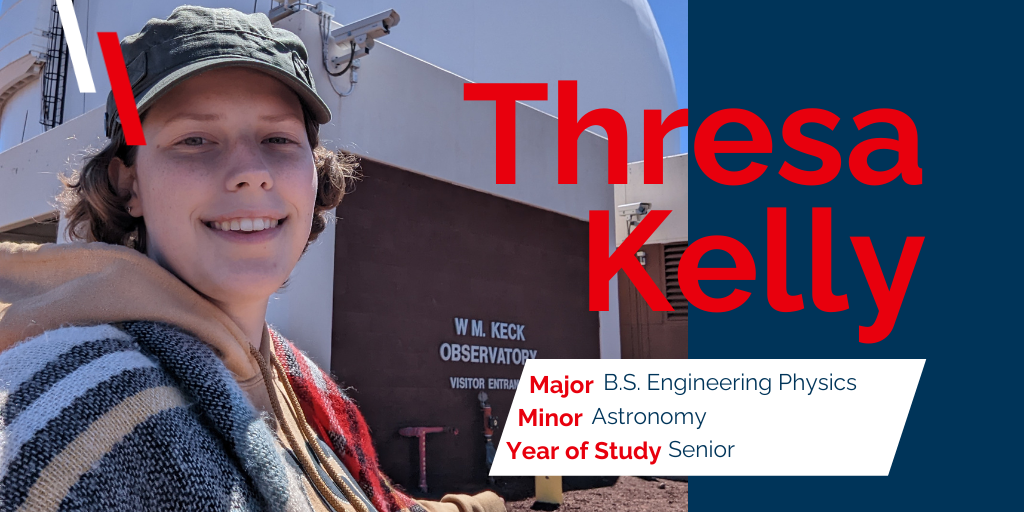
Thresa Kelly’s passion for STEM started on a high school robotics team – that same passion still fuels her research at the University of Kansas that has taken her to Hawaii. At the College, she appreciates the diverse range of subjects and students and staff who have guided her in her journey at KU.
As an engineering physics major, with a minor in astronomy, Kelly decided to come to KU because it checked all her necessary boxes: a unique program, interesting coursework, and passion for physics and engineering.
She is passionate about astronomy research and looks forward to pursuing it as a career. For now, she looks forward to applying to Ph.D. programs and taking advantages of research opportunities in graduate school.
Where are you from? Why did you decide to come to KU?
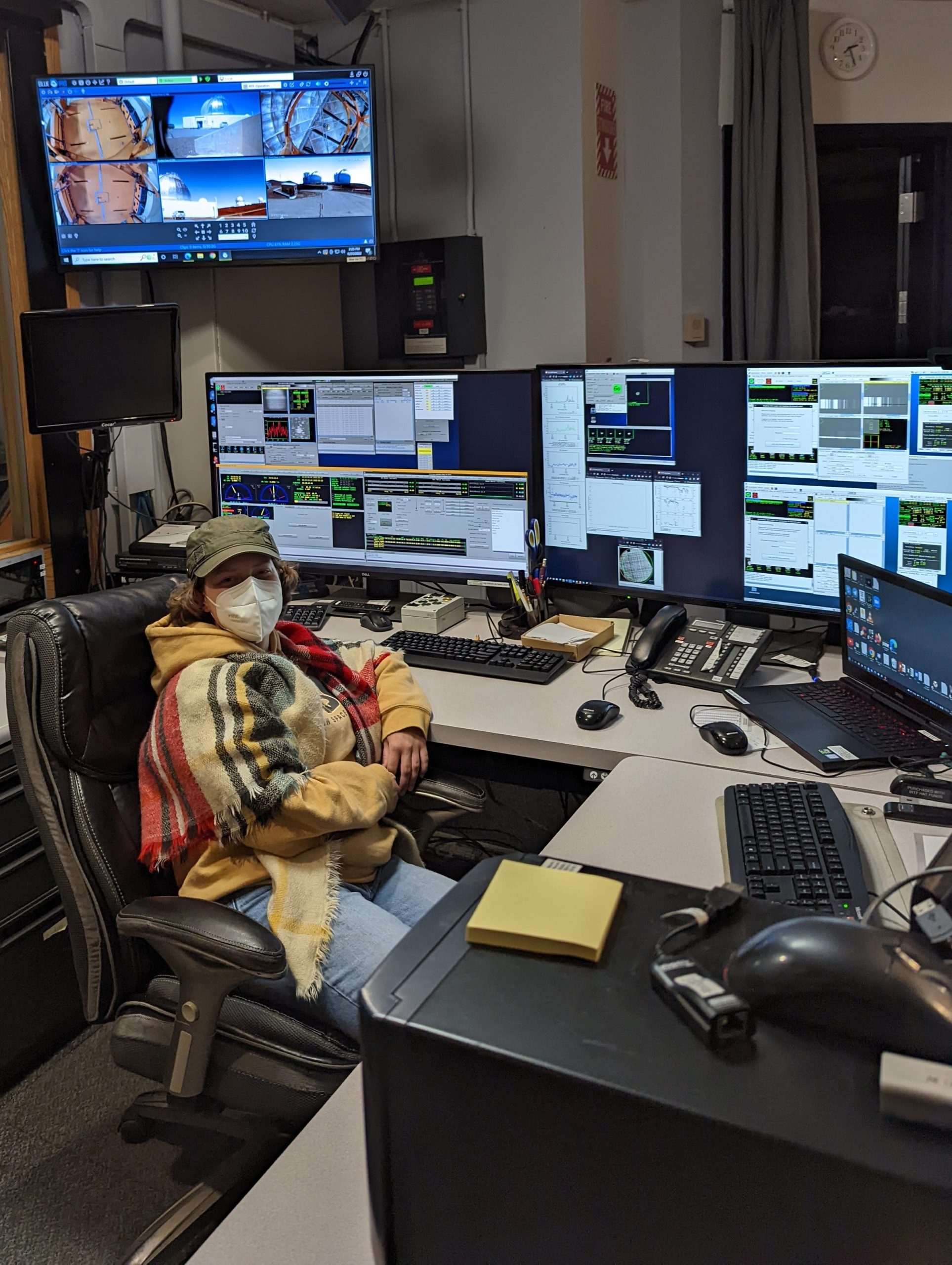
I decided to come to KU because it had everything I was looking for in a university. The engineering physics major is a unique program that combines coursework from both the School of Engineering and College of Liberal Art and Sciences. I was very passionate about both physics and engineering, so this major was the perfect compromise.
Next, I was interested in the undergraduate research opportunities at KU. I had reached out to one of my professors, Dr. Allison Kirkpatrick, and was invited to join her astronomy research groups. I have been a passionate undergraduate researcher assistant for a few years now.
Also, KU has a vibrant community, which includes many unique clubs and support services for students. Lawrence is also a great location for me, as I grew up in Kansas City. I often visit my family back home. Lastly, KU accepted all my International Baccalaureate test scores for course credit, which opened space in my schedule to do an Astronomy minor.
Why did you choose your major, concentration, and minor?
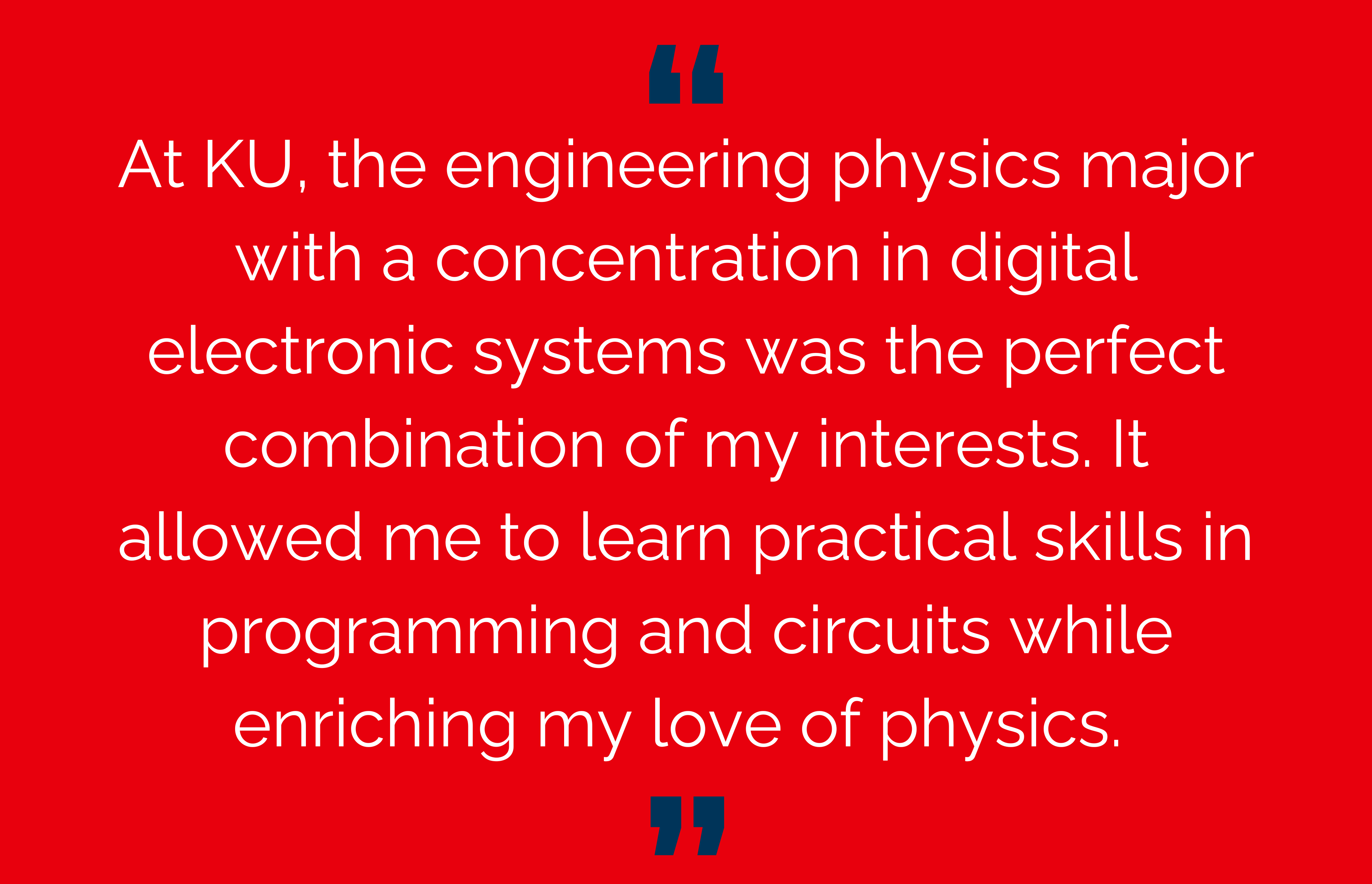
I had a hard time deciding on a major back when I was in high school, as I was torn between engineering, physics, and astronomy. I was a member of a FIRST Robotics team (Tigerbytes #1775) and enjoyed building circuits for our robot. I also loved my physics classes and had a strong interest in astronomy. New discoveries of gravitational waves and black holes fueled my curiosity for the natural world.
Pursuing an electrical engineering degree would be very practical, but I would have to give up my dreams of being a scientist. On the other hand, physics and astronomy careers require advanced degrees and I was not ready to commit to that length of schooling. At KU, the engineering physics major with a concentration in digital electronic systems was the perfect combination of my interests. It allowed me to learn practical skills in programming and circuits while enriching my love of physics.
What is the most exciting part of your major, minor, and concentration? What do you think is most valuable about your experiences in these programs?
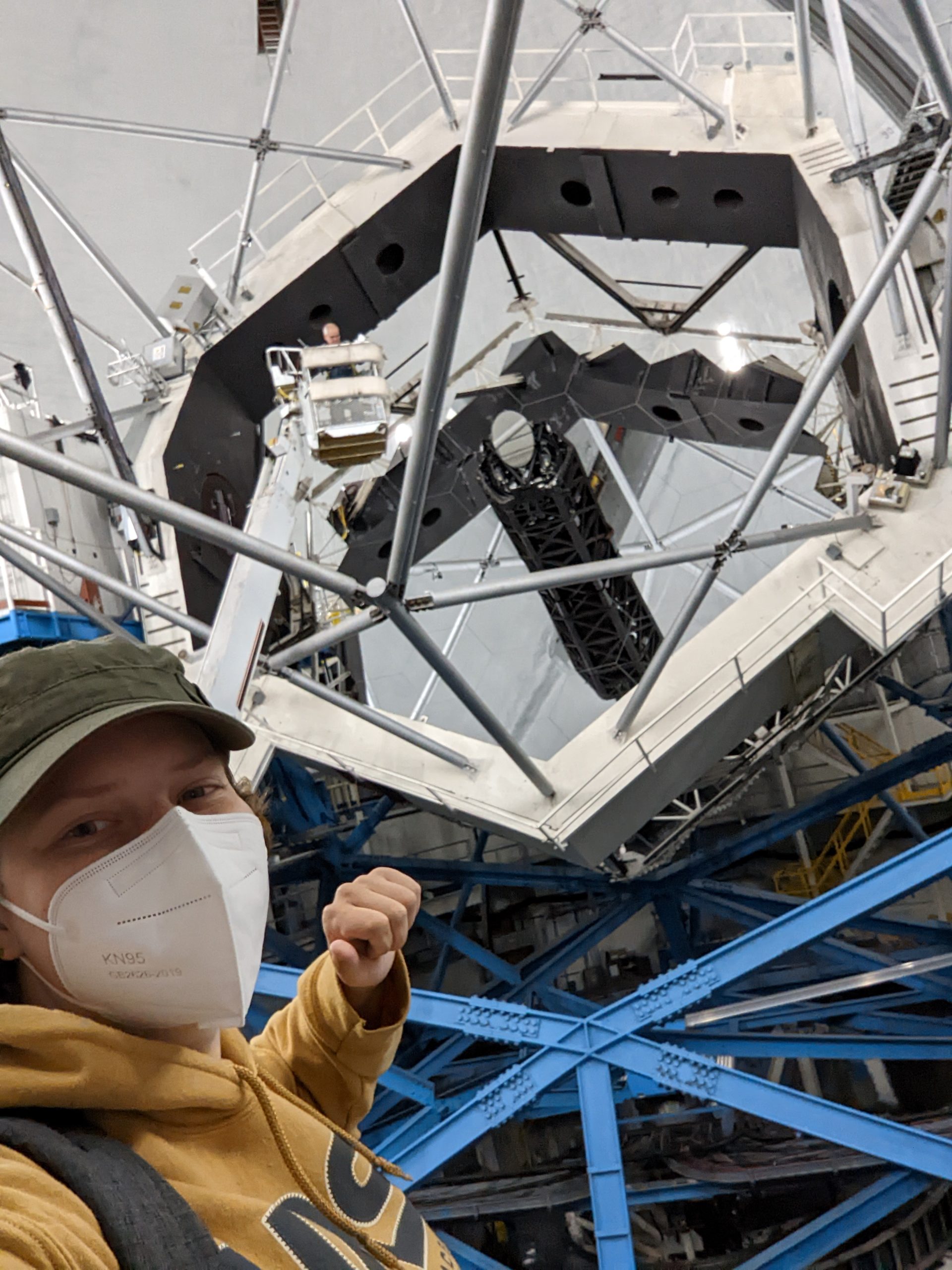
The engineering physics program is a joint major between the School of Engineering and the College of Liberal Arts and Sciences. So, I have access to a wide range of resources across the University. This includes access to professors, advisors, extracurricular clubs, career services, and more!
I love the interdisciplinary nature of my major, as it teaches me to think in different ways: computer science enhances logical and procedural thinking, electrical engineering requires practical problem solving, physics necessitates complex modeling, and astronomy inspires creative problem solving. My major and minors have made me a very successful and well-rounded student.
What is the benefit of being in the KU College alongside students studying sciences, arts, and humanities?
It is important to be exposed to a diverse range of subjects. Meeting with students, faculty, and staff in degrees other than your own can open you up to new ideas and new ways of thinking. I have always enjoyed my elective classes outside of my major, which include linguistics and ceramics.
Have you done any internships, study abroad programs, or any other learning experiences you’d like to share?

I was very fortunate to be accepted to a Research Experience for Undergraduates (REU) program at the University of Hawaii: Institute for Astronomy (IfA). I spent 10 weeks living in Honolulu working on an independent research project with Dr. Dave Sanders. For my research, I compared the multiwavelength properties of active galactic nuclei (accreting supermassive black holes found in the centers of galaxies) identified by two different selection techniques: X-ray luminosity and IR color selection. I attended journal clubs, seminars, and colloquia given by faculty and visiting scientists. I also got to tour the world-class astronomical observatories on Maunakea. It was inspiring to see these famous telescopes in person. Outside of work, I would explore Hawaii with the other REU students. I got to spend many evenings on scenic beaches, visiting history and art museums, and enjoying local restaurants. This REU was an amazing experience.
My research did not end with the REU. I have since continued my project. I’ve presented posters of my work at several conferences, including the American Astronomical Society meeting last January. I have met many other scientists through these conferences. Most notably, I was also invited by Dr. Mark Brodwin from University of Missouri-Kansas City to give an astronomy seminar talk about my research. I am nearly complete with my project and expect to submit my work to a peer-reviewed journal in the coming month.
Would you like to give a shout-out to a professor, mentor, advisor, or someone at KU who has helped you?
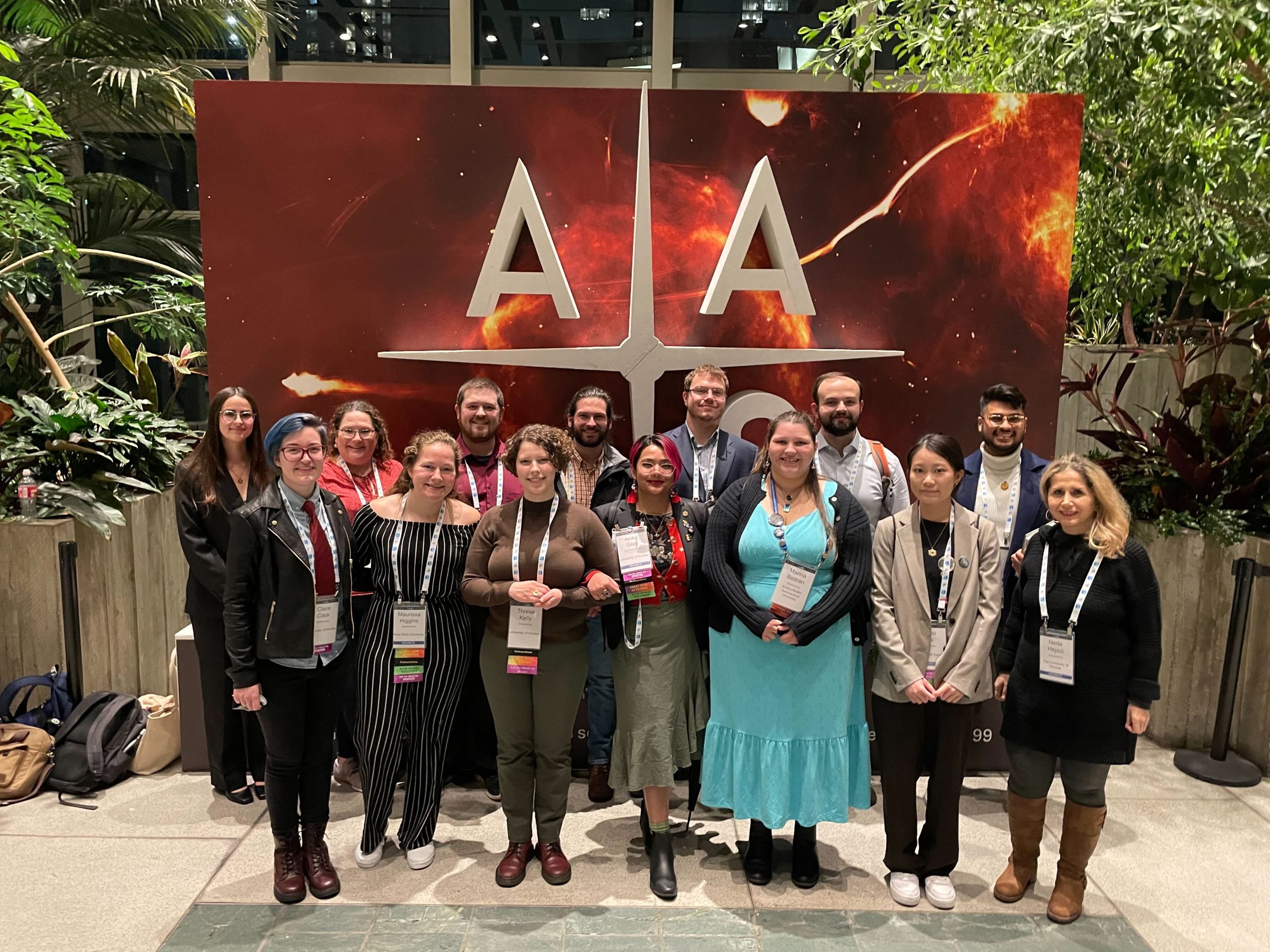
I am grateful for all the advice and support from Dr. Allison Kirkpatrick. I first met Dr. Kirkpatrick as my professor in one of my astronomy classes. I reached out to her and asked if I could join her student research group, which she accepted. I began an introductory project to identify active galactic nuclei, or energetic super massive black holes in the centers of galaxies, using infrared observations. This project, along with her mentoring, led to my acceptance to the IFA’s REU program. Since then, many new opportunities have opened up for me. I am thankful for Dr. Kirkpatrick’s continued support.
What do you want to do when you graduate?
I’m passionate about astronomy research and want to pursue it as a career, so I will be applying to Ph.D. programs in astronomy and astrophysics this fall. I am very excited for the research opportunities in graduate school. I am most interested in studying active galactic nuclei, black holes, and gravitational waves.